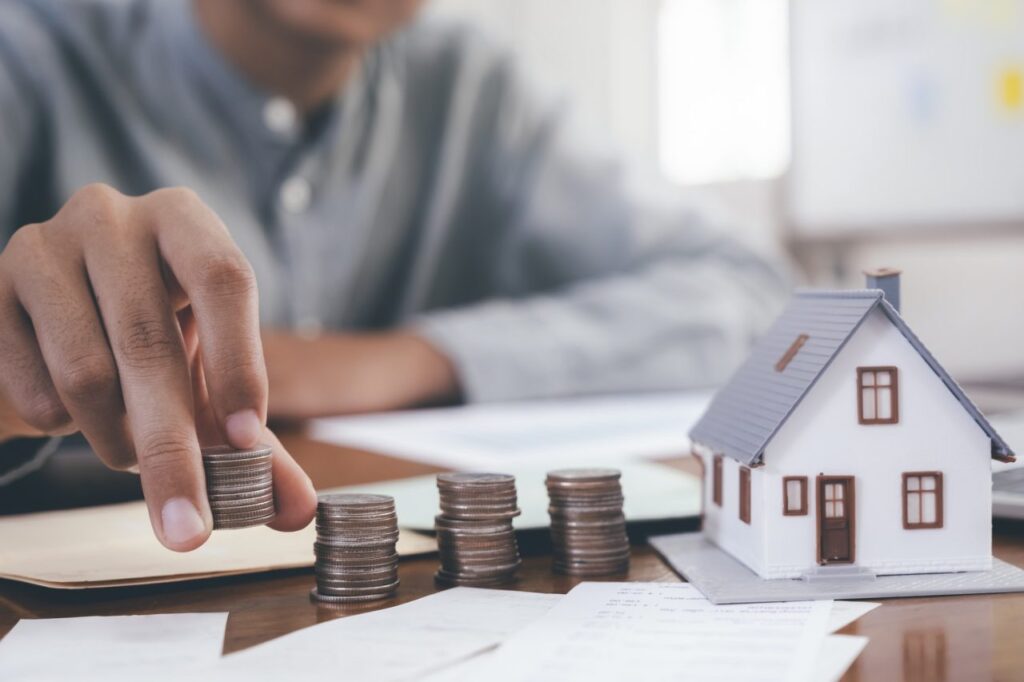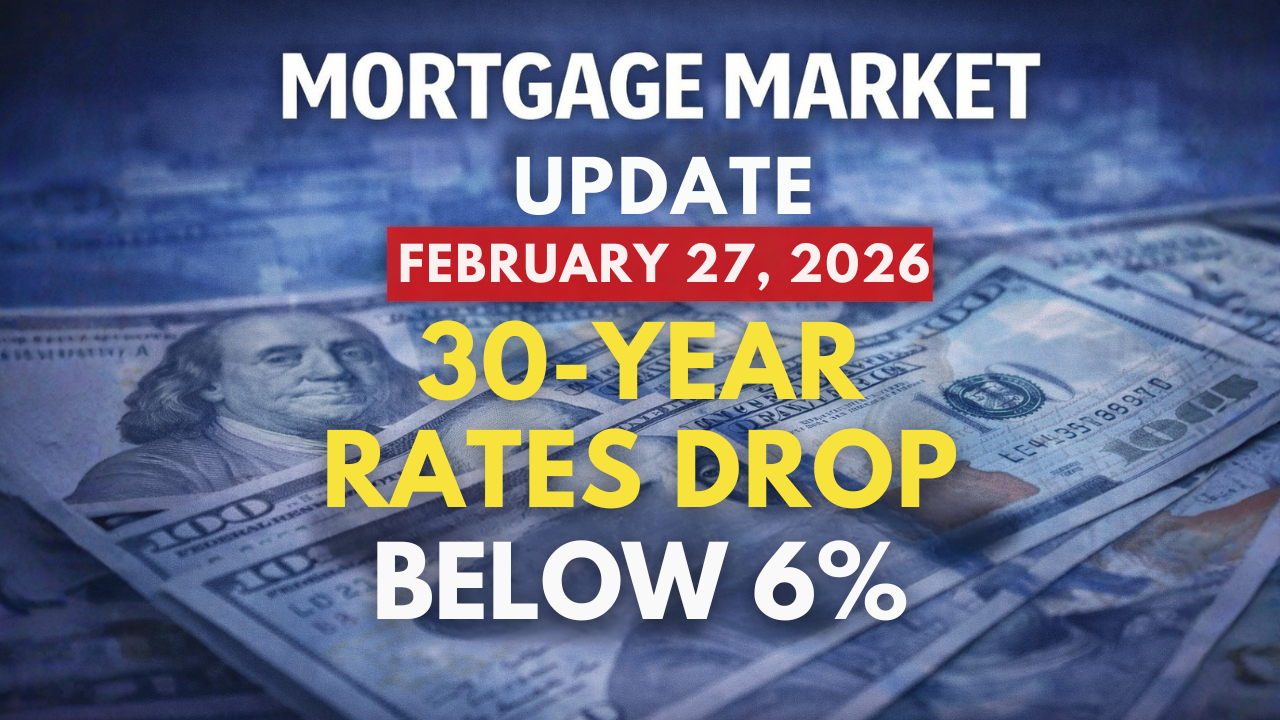When considering ways to tap into your home’s equity, it’s easy to feel overwhelmed by the options available. Two popular methods are the home equity loan vs reverse mortgage—but what’s the difference, and which one is best for your situation?
A home equity loan allows homeowners to borrow a lump sum of money against the value of their home, which is repaid over time. On the other hand, a reverse mortgage is designed for older homeowners who want to access their home’s equity without making monthly payments. Instead, the loan is repaid when the homeowner moves out or passes away.
Understanding these two options can help you decide which fits your needs. Whether you’re looking for funds for a home improvement project or need financial support in retirement, both have benefits and drawbacks.
Key Takeaways:
- Home Equity Loan: Provides a lump sum with fixed payments, but requires monthly repayments.
- Reverse Mortgage: Ideal for seniors, no monthly loan payments, but reduces inheritance value.
- Choosing the Right Option: Factors to consider include age, financial stability, and long-term goals.
What Is a Home Equity Loan?
A home equity loan is a type of loan that allows you to borrow money by using your home as collateral. This means the loan is secured by the value of your home. Homeowners with significant home equity—the difference between the current market value of the home and the remaining mortgage balance—are eligible for a home equity loan.
By taking out a home equity loan, you’ll receive a lump sum of money, which you’ll pay back over a fixed term, usually between 5 and 30 years. The interest rate is typically lower than a personal loan or credit card, especially for those with good credit.
This type of loan is ideal for homeowners who want to borrow a lump sum of money for a specific purpose, such as using the funds for home renovation or consolidating high-interest credit card debt.
Pros and Cons of Home Equity Loans
Pros | Cons |
Lower interest rates | Risk of losing your home if you miss payments |
Fixed monthly payments | Requires a good credit score and stable income |
Can be used for large expenses like home improvement | Monthly payments could strain your budget |

What Is a Reverse Mortgage?
A reverse mortgage loan is designed for homeowners aged 62 or older. Unlike a home equity loan, where you make monthly payments, a reverse mortgage allows you to convert part of the equity in your home into cash. This means you can access your home’s value without needing to sell the property. The loan is repaid when you sell your home, move out, or pass away.
The most common type of reverse mortgage is the Home Equity Conversion Mortgage (HECM), which is insured by the federal government. It’s ideal for seniors who need extra income for retirement or for paying healthcare expenses.
Reverse mortgages are best for seniors who want to live in the home they own and need additional income, but do not want the burden of monthly mortgage payments. This option is especially useful for those with significant equity in their home who may have limited income during retirement.
Pros and Cons of Reverse Mortgages
|
Pros of Reverse Mortgages |
Cons of Reverse Mortgages |
|
No monthly mortgage payments |
Higher interest rates than home equity loans |
|
Provides financial relief for retirees |
Reduces the amount left for heirs |
|
Stay in your home as long as you meet the requirements |
Fees and costs are often higher than other loan types |
Home Equity Loan vs. Reverse Mortgage: What Are the Major Differences?
It’s important to understand the key differences between reverse mortgages and home equity loans when considering taking out a new loan that can impact your financial future. Here’s a quick comparison to help you make the best choice based on your needs:
|
Feature |
Home Equity Loan |
Reverse Mortgage (HECM) |
|
Eligibility |
Homeowners with sufficient equity and good credit |
Homeowners aged 62+ with significant home equity |
|
Monthly Payments |
Yes, fixed payments on both principal and interest |
No monthly payments |
|
Repayment Terms |
Fixed term (5-30 years) |
Repayment due when you sell, move out, or pass away |
|
Interest Rates |
Typically lower than reverse mortgages |
Higher and often variable interest rates |
|
Loan Amount |
Up to 85% of home equity |
Based on age, home value, and current interest rates |
|
Fees and Costs |
Closing costs, appraisal fees |
Higher fees, including mortgage insurance premiums (MIP) |
|
Impact on Homeownership |
You retain ownership and pay back the loan |
You remain in your home but the loan is repaid when you leave or pass away |
|
Best For |
Homeowners with stable income seeking a lump sum |
Seniors looking to supplement retirement income without monthly payments |
Financial Costs and Considerations
When comparing home equity loans and reverse mortgages, it’s crucial to consider not only the benefits but also the costs and long-term financial impacts of each option. Both loans come with their own set of fees and financial commitments, which could affect your decision.
Costs of a Home Equity Loan
Upfront Costs
- Closing Costs: These may include appraisal fees, origination fees, and legal costs, which can range from 2% to 5% of the loan amount.
- Appraisal Fees: You’ll need an independent appraisal to determine your home’s current value.
Ongoing Costs
- Interest Payments: You’ll pay interest on the loan amount over time. These rates are usually fixed and lower than those of credit cards and personal loans, but the monthly payments can still add up.
- Private Mortgage Insurance (PMI): If your loan-to-value (LTV) ratio exceeds 80%, you may be required to pay for PMI.
Costs of a Reverse Mortgage
Upfront Costs
- Closing Costs: Reverse mortgages typically come with higher upfront costs, including lender fees, closing fees, and the mortgage insurance premium (MIP), which is required for HECMs.
- Appraisal and Counseling Fees: You may also need to pay for a home appraisal and mandatory counseling sessions to qualify for a reverse mortgage. These are designed to help you understand the terms of the loan.
Ongoing Costs
- Servicing Fees: The lender may charge monthly servicing fees, which add to the loan balance.
- Interest Accumulation: The mortgage interest is compounded over time, meaning the longer you stay in the home, the higher the mortgage balance becomes.
Long-Term Financial Impact
- Home Equity Loan: Since you’re required to make monthly payments, your home equity is protected, but you risk losing your home if you miss payments throughout the loan term.
- Reverse Mortgage: Over time, the loan balance grows, potentially depleting your home equity. This means you may have little to nothing left for heirs. However, there’s no risk of foreclosure if you meet the requirements.
As you get to understand these costs, you will be able to weigh the pros and cons of each option and make a decision that fits your long-term financial goals.

Which Option Is Right for You?
Choosing between a reverse mortgage or home equity loan depends on your personal financial situation, long-term goals, and how you plan to use the funds. Here’s a breakdown of key factors to consider when deciding which option is best for you.
1. Age and Retirement Status
- If you’re under 62 years old, a home equity loan is your only option. Younger homeowners with a steady income may find this a good way to fund home improvement or consolidate debt.
- If you’re 62 or older, a reverse mortgage might be a more suitable option, especially if you’re retired or nearing retirement and need a source of income without monthly payments.
2. Monthly Payment Ability
- Home equity loans typically require monthly payments on both the loan amount and interest. If you have a stable income and can manage these payments, a home equity loan is best.
- Reverse mortgages, on the other hand, don’t require monthly payments. If you don’t want the burden of monthly mortgage payments or if you have limited income, a reverse mortgage can be a better fit.
3. How Long Do You Plan to Stay in Your Home?
- If you plan to live in your home for many years, a home equity loan may be a better choice, as it allows you to retain more equity and make manageable payments over the life of the loan.
- If you plan to stay in your home for the long term and are over 62, a reverse mortgage could be ideal because you don’t have to worry about monthly payments, and you can access your home equity.
4. Impact on Heirs
- With a home equity loan, your home equity remains relatively stable, as long as you continue to make payments. This means you can leave your home to your heirs, as long as the loan is repaid.
- Reverse mortgages, however, may reduce the amount of inheritance you leave behind, as the loan balance increases over time.
5. Loan Amount and Interest Rates
- Home equity loans generally offer lower interest rates compared to reverse mortgages, which can be a major factor if you want to minimize long-term costs.
- With a reverse mortgage, the amount you can borrow is based on factors like age and home value, and the interest rates are often higher.
Final Decision Tips
- Think about your age, income stability, and how long you plan to stay in your home.
- If home improvement or large expenses are a priority, and you can handle monthly payments, a home equity loan is likely the better option.
- If you’re seeking financial relief in retirement and want to avoid monthly payments, a reverse mortgage may be the ideal choice.
Both options can help you access your home equity, but it’s important to choose the one that best aligns with your needs and long-term plans. Consulting a financial advisor can provide personalized guidance tailored to your specific situation.
Frequently Asked Questions
1. Can I take out both a home equity loan and a reverse mortgage?
Yes, but it depends on your financial situation. If you qualify for a home equity loan, you could use it for certain expenses while also accessing a reverse mortgage for additional financial relief, especially if you’re 62 or older. However, it’s important to consult with a financial advisor to ensure that taking both loans won’t lead to financial strain or conflict in repayment terms.
2. How does a reverse mortgage affect Medicaid eligibility?
A reverse mortgage could impact your eligibility for Medicaid, depending on how the funds are used. If you use the reverse mortgage funds to pay for healthcare or living expenses, it may be considered as income, which could affect Medicaid eligibility. It’s important to consult with a professional to understand how this will apply to your specific situation.
3. What happens if I outlive my reverse mortgage?
One of the benefits of a reverse mortgage is that it’s a non-recourse loan, meaning you will never owe more than your home’s value, even if the loan balance exceeds the home’s worth. If you outlive the loan, your heirs can sell the home outright to repay the loan balance, but they won’t be responsible for paying more than the home’s sale price.
4. Are reverse mortgages taxable?
No, the money you receive from a reverse mortgage is generally not considered taxable income. Since it’s a loan and not income, it doesn’t affect your taxes. However, when the loan is repaid, any remaining proceeds from the sale may be taxable depending on your situation.
5. Can I refinance a reverse mortgage?
Yes, you can refinance a reverse mortgage if needed. However, refinancing can come with additional costs and requires meeting certain conditions. It’s important to assess whether refinancing will be beneficial for you in the long run, considering the higher fees and interest rates associated with reverse mortgages.
Conclusion
Choosing between a home equity loan and a reverse mortgage depends on your unique financial needs and future plans. If you’re looking for a manageable way to turn your home equity into cash and are capable of handling monthly payments, a home equity loan may be your best option. On the other hand, if you’re 62 or older and need access to funds without monthly payments, a reverse mortgage can provide a good solution to supplement your retirement income.
Understanding the key differences, costs, and eligibility requirements for each can help you make an informed decision that aligns with your financial goals.
Ready to Learn More?
If you’re considering a home equity loan or a reverse mortgage, Morgan Financial can guide you through the process. Our experienced mortgage lenders are here to help you find the right loan option for your needs.
Contact us today for personalized advice and assistance with your mortgage needs!




